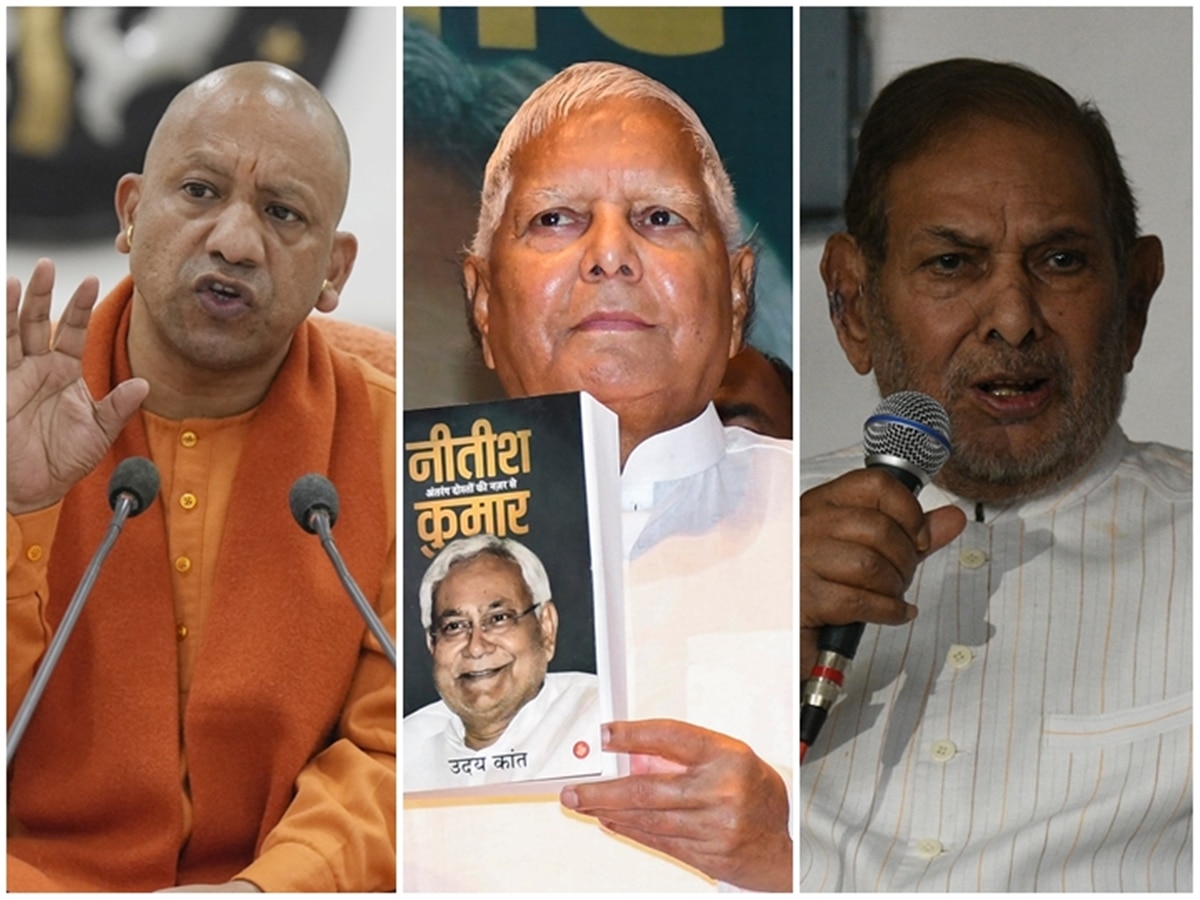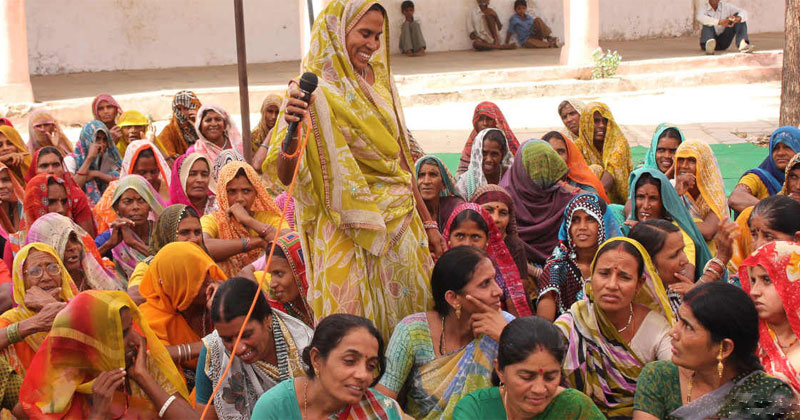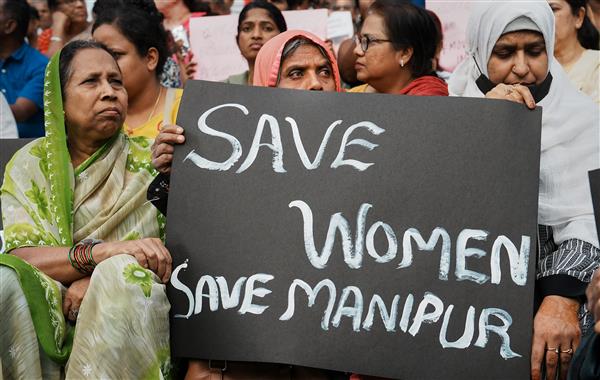
In a historic and progressive move, the Parliament passed the Women’s Reservation Bill or the Nari Shakti Vandan Adhiniyam to reserve one-third of seats for women in the Centre and state legislatures. Although there still remains a long way, for the actual policy to come into effect (at least till the 2029 elections), the move is still being hailed as the biggest step towards empowering women’s representation in the country’s politics. But, the most important takeaway from the whole episode was how BJP was able to change the political discourse of the country just ahead of the election year. So, I will try to explain that and take a deeper look into this historic bill.
History of Women’s Reservation Bill
The history of the Women’s Reservation Bill dates long back. During the drafting of the Constitution, the makers didn’t felt any need for a ‘special consideration’ for women. Even many prominent women MPs like Sarojini Naidu, Rajkumari Amrit Kaur and Vijaylaxmi Pandit opposed the idea. The first Indian Prime Minister to have sown this idea was Rajiv Gandhi, who brought a Constitution Amendment Bill to provide one-third reservation for women, but in ‘rural and urban local bodies’. The bill, however, was passed only in Lok Sabha and not in Rajya Sabha in 1989. A few years later, after Congress returned to power after Rajiv’s demise, PM Narsimha Rao reintroduced the bill in 1992-93 when it finally got passed by the upper house and became law.
After this, the minority government of Devegowda tried to bring a bill to provide one-third reservation to women in 1996. The bill was sent to a Joint Parliamentary Committee (JPC) but eventually lapsed after the government fell a year later. Atal Bihari Vajpayee was perhaps the leader, who tried to materialise the subject the most. He brought the bill, as many as 4 times, but couldn’t garner the required numbers. The Manmohan Singh government also delved into the issue. The bill was sent to the standing committee, and was also passed in Rajya Sabha by 186-1, but was NEVER introduced in the lower house (as UPA partners like SP, and RJD were outrightly against it) and eventually lapsed after the dissolution of Lok Sabha.

Yogi Adityanath and parties like SP, RJD were staunch opposers of Women’s Reservation (Photo: ABP News)
Some “inspiring” views from our “great” leaders
“If men develop feminine traits, they become Gods, but if women develop masculine traits, they become demons”. This great statement was made by none other emphatic Uttar Pradesh CM and aspiring PM, Yogi Adityanath (or Mr Ajay Singh Bisht). He even argued that having more women in Panchayats can “adversely affect” the health of children. After all, he had also said in 2015 that “Women are not capable of staying independent”, so I am not surprised.
But, Yogi is not the only one here. JD(U) MP Sharad Yadav said that if Women’s Reservation Bill comes, only “girls with short hair” will benefit out of it. What he effectively meant was progressive and modern educated girls. Former CM Mulayam Singh Yadav went a step ahead, and said that “if women get reservation, then young men will be seen whistling in the Parliament”. The “epic statements” that I highlighted above, very well show where Indian politics stood at a point. Those opposing the bill argue that it will lead to the crowding of Parliament with “incompetent women” as if we have got many “competent men” sitting in there.
There were basically two relevant criticisms of the bill. First; quota for backward communities. Many parties demanded special quotas for OBC and Muslim women. They argue that in the absence of this, the bill would only benefit women from well-off societies. However, their argument can be nullified by what the BJP said now and what Sonia Gandhi said in 2010 (when Congress was trying to bring the bill). Who is stopping any party from giving tickets to women from the above-mentioned communities? And, when there is NO provision for OBC reservation of seats for men, how can the fit be extended to OBC women.
The other major criticism is regarding the timing of its implementation. It is clear that the reservation won’t be applicable in the 2024 General elections. It can only come into effect after the Delimitation exercise — slated to be held in 2026 — is carried out. The exercise can happen only after the fresh census, which is still due (and can’t be expected before 2025). However, a lot of uproar is expected during Delimitation too (I will discuss this some other day). Here, the BJP deserves fare share of criticism, because had it brought the bill before, it could have been implemented and its future wouldn’t have hung in limbo.

BJP was at its best while making everyone feel how historic the bill is (Photo: NDTV)
How was it passed now?
Now, surprisingly and fortunately so, the atmosphere in the country has reached a point, where opposing this bill would have shown the opposition or the INDIA bloc in a very regressive and poor light. It is pertinent, that Rahul Gandhi recently during an interaction in the US, had said that Women’s Reservation Bill is one of the things that he would do after coming to power. So, the opposition had no option but to vote for this bill. Even those voices who put out criticisms against the bill eventually ended up voting for it.
As a result, the bill was passed with an overwhelming majority; 215-0 in the Upper House and 454-2 in the Lower House. The two over-smart people were none other than AIMIM chief Asaduddin Owaisi and his party MP Imtiaz Jaleel. Their argument is that the bill has no provision for Muslim and OBC women. But, Mr Owaisi forgot that his own party has NO female candidates at any post in the party, forget MP or MLA. So, what Owaisi has effectively shown is that his party’s ideology is nothing more than a set of “misogyny” and “patriarchy” and all his tall claims of ‘Hijab wearing women becoming Indian PM’ are just blabbering (PS: I would be rooting for it to happen, if the candidate is truly deserving).

The bill can lead to more female leaders coming to the fore from the grassroots (Photo: Organiser)
Why it is so historic indeed
As I said above, the Women’s Reservation Bill is indeed a very positive and progressive step. If we look at a rough distinction, there are 48% of women in the country, which is almost half. So, how come, have we never even half a quarter of women representatives. Actually, the female representation in India is amongst the lowest. Forget developed countries, we even lag behind Bangladesh and Nigeria. India ranks at 141 out of 185 countries and is the lowest among G20 nations (Summit which we hosted proudly). It is no rocket science that the situation in this regard is dire.
In my opinion, it is very crucial to have a healthy female representation among the policymakers to get a female point-of-view on every subject that is being discussed in the country. It is not just important logically but also democratically. Article 15 (3) of the Constitution provides the government, to make special provisions to protect the interest of women and children.
A paper from the London School of Economics highlighted that more representation of women at the Panchayat level increased the focus towards issues like drinking water, road connectivity and school education. Nobel Laurette economist Esther Duflo pointed out that “Women allocate money towards public goods relevant to female population”. Not just that, having more female leaders also changes the perception of women in society, and will make women more confident and aspirational, especially in backward and orthodox societies.
Now, we might see parties actually working out for getting more and more female leaders into their parties and that too at prominent posts. We might be seeing more female voices and female-centric issues being raised in the Parliament and coming into the mainstream discussion. Also, it might actually make “orthodox misogynist” parties (IYKYK) obsolete in the long run.

Manipur violence has been an issue where the Modi government has been on the backfoot (Photo: Organiser)
How BJP changed the political discourse
Manipur Violence. Amid the violence, that has been going on for around six months now, several cases of brutal killings and rape have come out. The tension reached its peak when a video surfaced showing two women of ‘one community’ being paraded naked by a mob of ‘other community’. This took the social media as well as the nation’s politics by storm with Opposition coming guns blazing at the Modi government. And, despite all the “lame excuses” it presented, the BJP remained on the back foot throughout this issue. PM Modi first spoke on the issue only after 3 months after intense pressure.
Wrestler’s Protest. A group of wrestlers including Olympian grapplers Bajrang Punia, Sakshi Malik, and Vinesh Phogat were protesting against Wrestling Federation of India (WFI) chief Brij Bhushan Singh who — used his position and every opportunity he got — and sexually harassed several young female wrestlers including minors (Yes I won’t use allegedly). The wrestlers kept on protesting for months, tried to throw their medals into river and even pleaded with the Prime Minister to provide them justice. However, forget PM Modi, no senior minister was willing to even give a plain assurance that “justice will be served” (some even ran marathon). The whole country saw when the protesting wrestlers were dragged away by the police into custody while the accused celebrated inside the New Parliament building.

Olympian Sakshi Malik being dragged by police while protesting against WFI chief (Photo: Hindustan Times)
Now, these two issues were presenting the BJP in a very bad light. Although, the party was trying to do damage control, somehow pointing out rape cases in Opposition-ruled states, or recalling some episode from 1990 or the Nehru era. However, except the hardcore supporters, almost everyone had a negative opinion of the BJP, at least on these issues. So, the saffron party needed something to somehow change the political discourse. Out of nowhere, the Modi government announced a Special Session of Parliament from September 18-22 without declaring any agenda. The Opposition kept guessing between the ‘Uniform Civil Code’ and ‘One Nation One Election’. But, there came out the rabbit out of the hat.
The Women’s Reservation Bill was presented with much fanfare with Mr Modi leading the way for women. A whole sequence was created, where all women BJP MPs were thanking the Prime Minister. Modi’s remarks that “God has chosen me for many such holy acts” further show how successful the ‘makeover’ plan worked out for the BJP. Suddenly, the issue shifted the whole political discourse and presented Modi as the ‘messiah’ of the women. What is really remarkable here, is that the Women’s Reservation Bill is not an issue having full consensus within the BJP. So, the party coming in all-out support for the bill shows the command, the party leadership (Modi-Shah basically) holds.
The Way Forward for Women in Indian Politics
But, at the same time, we must accept another hard truth. Just the passing of the bill is not the complete solution to the age-old misogyny this country is crippled with. We have seen examples, where female Sarpanch are just kept as ‘stamp paper’ of their husbands, and it is the men who exercise the actual power. Also, there is no hard-and-fast rule that women candidates will fasten the pace of development. After all, nothing can be achieved nor expected from MPs like Pragya Thakur, Sadhvi Prachi and Uma Bharti.
Regarding the 2024 Elections, the BJP has actually shifted the political discourse quite effectively and it has dented the Opposition’s plans leaving it confused with too many big issues coming its way (UCC, ONOE, India v Bharat). However, it is not as if the game is over, but the advantage is still pretty much BJP.
Anyways, I would like to conclude with this historic bill. So, what ‘I’ see as the way forward for Indian politics, is many educated and progressive women actually stepping up and cashing on the opportunity. I am personally very fond of looking up to nice female leaders at top posts in the country. And I will be expecting many new faces, strong voices and crucial issues making their way into Indian politics, as this historic bill gets underway.


Well written. Your blogs are very informative. Good work.
Thank you so much. I always aim to bring fresh and interesting subjects. Your suggestions on topics would be appreciated.